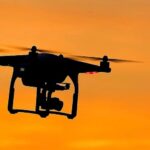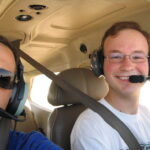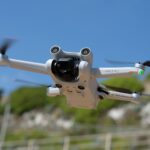
Key Takeaways: Quick Guide to Online Drone Pilot Training
- Online drone pilot training provides flexibility and comprehensive knowledge to pass the FAA Part 107 exam.
- Interactive video courses and quizzes enhance learning and retention for aspiring drone pilots.
- FAA certification is mandatory for commercial drone operations and beneficial for hobbyists seeking to expand their skills.
- Training courses offer lifetime access and are regularly updated to reflect changes in drone regulations.
- Support from certified instructors and community study groups is available to ensure success.
Unlock the Skies: Your Journey to Becoming a Drone Pilot
Have you ever looked up at the sky and marveled at the drones soaring above? The good news is, that could be you controlling those nimble machines. With the right training, you can unlock the skies and embark on a journey that could lead to an exhilarating hobby or a lucrative career. Let’s take flight and explore what it takes to become a certified drone pilot.
Why You Should Consider Becoming a Drone Pilot
Why drone piloting? Well, for starters, drones are revolutionizing industries across the board—from agriculture to filmmaking, to search and rescue. The demand for skilled pilots is soaring, and the opportunities are as vast as the skies. Besides that, flying a drone is incredibly fun and rewarding, offering a unique blend of technology and creativity.
The Role of Certification in Your Drone Career
Certification is your golden ticket to the drone world. It’s not just a piece of paper; it’s proof that you have the knowledge and skills to operate safely and legally. Most importantly, if you’re eyeing commercial drone gigs, the FAA Part 107 certification is a must-have. Even as a hobbyist, the training you’ll receive can significantly enhance your piloting skills and understanding of the airspace.
Now, let’s dive into the details of what online drone pilot training entails and how it can propel you into the skies.
Deciphering the Drone Pilot Training Landscape
Choosing the Right Online Training Course
When it comes to online training, one size doesn’t fit all. You’ll want to choose a course that aligns with your goals and learning style. Look for a course that offers:
- Comprehensive coverage of all FAA Part 107 knowledge areas.
- Interactive elements to keep you engaged.
- Access to instructors for when you hit a turbulence of doubts.
And because we’re all about clear skies and smooth flying, let’s make sure you have lifetime access to course materials, so you can brush up on the rules whenever you need.
Understanding FAA Part 107 Requirements
The FAA Part 107 sets the stage for commercial drone operations in the U.S. To fly under this rule, you’ll need to:
- Pass the FAA Part 107 knowledge test.
- Be at least 16 years old.
- Be proficient in English and in a physical and mental condition to safely operate a UAS.
By understanding these requirements, you’re laying the groundwork for a successful training experience.
Comprehensive Video Training: The Visual Learning Advantage
Step-by-Step Guides and In-Depth Tutorials
There’s something about watching a concept in action that makes it click. That’s why video training is such a powerful tool. It breaks down complex regulations and flight operations into bite-sized, digestible pieces. You’ll follow along as experts demonstrate maneuvers and explain the intricacies of drone law. And the best part? You can pause, rewind, and rewatch until you’ve nailed the concept.
Interactive Learning with Quizzes and Practice Exams
Quizzes aren’t just for school—they’re a fantastic way to test your knowledge and prep for the FAA exam. Most importantly, they give you immediate feedback on what you’ve mastered and what needs a bit more study time. With practice exams that mimic the real deal, you’ll walk into the testing center with confidence.
Stay tuned as we continue to unravel the journey to becoming a drone pilot, including maximizing your training with supplementary materials, navigating the certification process, and soaring into your drone career.
Downloadable Cheatsheets and Lesson Notes
Imagine having a handy reference right at your fingertips whenever you’re out flying. That’s exactly what downloadable cheatsheets and lesson notes offer. They serve as quick reminders of the do’s and don’ts, helping you to avoid common mistakes and keep your operations within legal bounds. With these resources, you’re never alone in your journey to becoming a proficient drone pilot.
Access to a Flashcard App for Efficient Review
Flashcards aren’t just for kids; they’re an incredibly effective learning tool for drone pilots too. An app can make review sessions more efficient, allowing you to drill down on key concepts and regulations wherever you are. This repetitive practice leads to better retention, making you a safer and more knowledgeable pilot.
Navigating the Certification Process
Now, let’s chart the course through the certification process. It may seem daunting at first, but with a solid training foundation, you’ll find it’s more straightforward than you think.
The first step is to absorb all the knowledge from your online course. Then, as you near the end of your training, it’s time to focus on the FAA Knowledge Test. This is where all those quizzes and practice exams pay off, giving you a clear picture of what areas you’ve got down pat and what areas need a little more attention.
Remember, the goal is not just to pass the test but to truly understand the material because, at the end of the day, it’s about being a responsible pilot.
- Review all course materials thoroughly.
- Take practice exams to gauge your readiness.
- Focus on areas where you score lower and review them again.
With these steps, you’re setting yourself up for success on the FAA Knowledge Test.
Preparing for the FAA Knowledge Test
The FAA Knowledge Test is a milestone in your drone pilot training. To ensure you’re fully prepared, make sure to:
- Complete all video lessons and study materials provided by your online course.
- Take multiple practice exams until you’re consistently scoring well.
- Brush up on any areas where you feel less confident.
When you’re consistently acing those practice tests, you’ll know you’re ready to take on the real thing.
How to Schedule and What to Expect on Exam Day
Scheduling your exam is a breeze. Simply find an FAA-approved knowledge testing center near you and book a slot. On exam day, arrive early with a government-issued photo ID and a clear mind. You’ll have two hours to answer 60 multiple-choice questions, and you’ll need to score 70% or higher to pass. So take a deep breath, trust your training, and go ace that test!
Post-Certification: Taking Your Skills to the Sky
Passing the FAA Knowledge Test is a thrilling moment. It’s when you officially become a certified drone pilot. But this isn’t the end of your journey—it’s just the beginning.
Best Practices for Newly Certified Drone Pilots
As a newly minted pilot, keep these best practices in mind:
- Always perform pre-flight checks to ensure your drone is in good working condition.
- Stay updated on the latest airspace regulations and local drone laws.
- Practice regularly to hone your piloting skills and build confidence.
These habits will help you maintain a high standard of safety and professionalism in all your drone endeavors.
And let’s not forget the importance of continuing education. The drone industry is dynamic, with new technologies and regulations emerging all the time. Staying informed and up-to-date is crucial for your growth as a pilot.
Exploring Career Opportunities and Networking
With your certification in hand, a world of opportunities unfolds before you. From aerial photography to surveying to drone delivery services, the applications are nearly limitless. Networking with other drone enthusiasts and professionals can open doors to new ventures and collaborations. So get out there, join online forums, attend meetups, and start building connections that can elevate your drone career.
Training on the Go: Mobile and Offline Access
One of the greatest benefits of online drone pilot training is the ability to learn on your own schedule, wherever you are. With courses accessible on mobile devices, you can turn any moment into a learning opportunity.
Learning Anytime, Anywhere with Online Access
Whether you’re on a lunch break or waiting for a flight, you can log into your training course and pick up right where you left off. This flexibility ensures that even the busiest schedules can accommodate the pursuit of drone piloting mastery.
And for those times when you’re out of range of a good internet connection, there’s a solution for that too.
Downloading Videos for Uninterrupted Learning
Many online training platforms allow you to download videos for offline viewing. This means you can continue your training even when you’re off the grid. It’s perfect for those who travel frequently or live in areas with unreliable internet. Just download the lessons you need, and you’re all set for uninterrupted learning.
Continuous Learning: Keeping Up with Industry Changes
The only constant in the drone industry is change. Regulations evolve, technology advances, and best practices get updated. That’s why continuous learning is key to maintaining your edge as a drone pilot.
Thankfully, the best online training courses don’t leave you high and dry once you’ve passed your exam. They offer:
- Regular course updates to reflect the latest FAA regulations and industry standards.
- Continued access to resources and support from instructors.
- Additional learning materials to expand your knowledge and skills.
With lifetime access to your course materials, you can ensure that your knowledge never gets outdated.
In the next part of this article, we’ll cover the support systems available to you as you navigate your training and the frequently asked questions that might be buzzing around your head.
Lifetime Access for Ongoing Education
As the drone industry advances, you’ll want to keep your skills sharp and your knowledge current. That’s why the best online drone pilot training courses offer lifetime access. This means you can revisit the course materials at any time, ensuring you stay on top of the latest regulations and operational techniques. It’s an invaluable resource for both novice and experienced pilots alike, ensuring your education continues long after you’ve earned your wings.
Getting the Support You Need
Embarking on the journey to become a certified drone pilot is exciting, but it can also bring challenges. That’s why having a robust support system is critical. Online training platforms typically offer various support options, from detailed FAQs to direct contact with instructors. They understand that questions might pop up at any time, and they’re ready to provide the answers you need to keep moving forward.
Accessing Expert Support and Study Groups
When you’re up in the air (figuratively speaking), it’s reassuring to know you have a team on the ground to help. Expert support comes in many forms: email assistance, forums, and even one-on-one coaching sessions. Additionally, joining study groups can be a game-changer. These communities of fellow drone enthusiasts offer advice, share experiences, and provide moral support. Together, you’ll navigate the skies—and the learning curve—more smoothly.
Utilizing Course Resources for Any Question
No question is too small when it comes to drone pilot training. The top-tier courses come equipped with extensive resources—think comprehensive guides, video libraries, and detailed illustrations. These materials are designed to answer your questions, clarify complex concepts, and provide practical tips. They’re your go-to resource for every stage of your drone pilot journey.
Frequently Asked Questions
Let’s clear the air with answers to some of the most common questions about online drone pilot training. These FAQs are designed to give you quick, clear insights into what to expect and how to prepare.
Am I Eligible to Take an Online Drone Pilot Training Course?
Eligibility for an online drone pilot training course is straightforward. If you’re at least 16 years old, proficient in English, and have a reliable internet connection, you’re good to go. There’s no need for prior experience with drones, as the courses are designed to take you from ground zero to certified pilot.
What Equipment Do I Need to Start My Training?
Starting your training is easier than you might think. All you need is:
- A computer, tablet, or smartphone with internet access.
- Note-taking materials (digital or traditional).
- A commitment to learning and a dash of enthusiasm.
And remember, while having a drone is beneficial for practice, it’s not required to begin your training.
Is Online Training as Effective as In-Person Classes?
Online training has revolutionized education, offering flexibility and tailored learning experiences. For drone pilot training, it’s no different. Online courses are designed to be just as effective—if not more—than in-person classes. They provide interactive content, real-world scenarios, and the ability to learn at your own pace. Plus, with the added benefit of revisiting materials as needed, online training ensures a thorough understanding of the subject matter.
How Long Does It Take to Complete Online Drone Pilot Training?
The time it takes to complete online drone pilot training varies depending on the individual. Some people breeze through in a couple of weeks, while others take a few months to digest the material fully. On average, you can expect to spend 15 to 20 hours on the coursework. However, the key is to move at a pace that ensures you’re confident and ready for the FAA Knowledge Test.
Can I Use a Drone Pilot Certificate for Commercial Purposes?
Absolutely! Once you pass the FAA Part 107 Knowledge Test, your Remote Pilot Certificate allows you to operate drones for commercial purposes. This opens the door to a range of opportunities, from aerial photography to infrastructure inspections. Just remember to keep your certification current by completing the FAA’s recurrent training every 24 months.
Becoming a drone pilot requires not only learning how to operate the aircraft but also understanding the regulations and safety procedures. One of the first steps is to obtain your Part 107 certification, which involves passing an FAA exam. Fortunately, there are online resources that offer drone pilot training, including comprehensive courses with videos and test prep materials to ensure you’re fully prepared for the certification process.






Leave a Reply